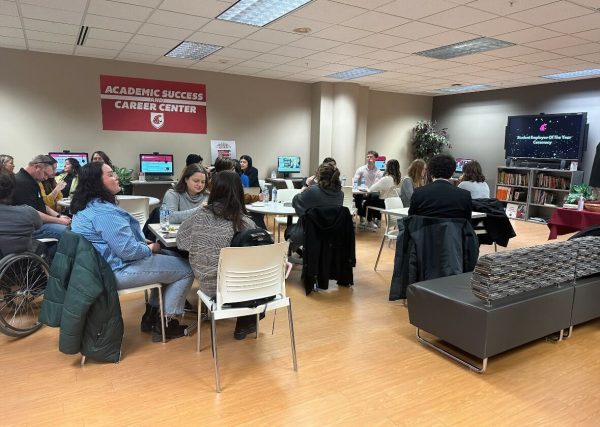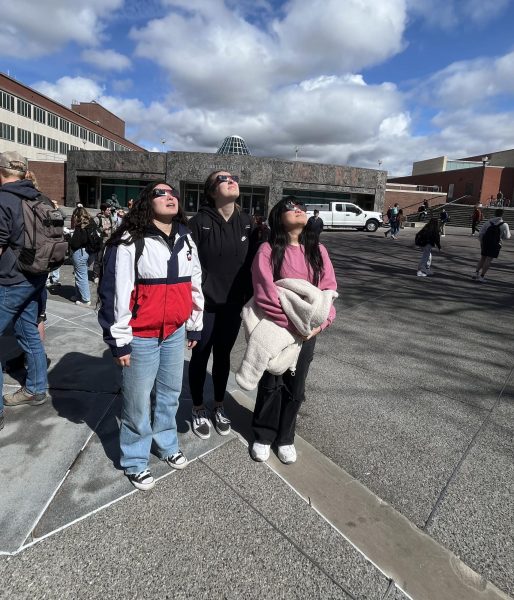Students urged to ‘Bring freedom where there’s fear’
October 17, 2013
Listening to her joke about her height and her tree allergy, no one would guess Judy Shepard suffered the loss of a child.
Shepard spoke about her son’s death and the inequality the Lesbian, Gay, Bisexual, and Transgender (LGBT) community faces in America on Wednesday night in the CUB Junior Ballroom.
On Oct. 6, 1998, Shepard’s 18-year-old son Matthew fell victim to an anti-gay hate crime in Laramie, Wyo., that led to his death a few days later.
At the speech, Shepard’s story hit close to home for junior history major Gracie Coleman.
“I have such amazing friends who are lesbian, and it scares me to death to think that it could happen to them,” she said. “To think that they could be judged because of their sexual preference shows all the ignorance in the world today. It’s sickening.”
Since her son’s death, Shepard has traveled across the country educating about inequality in the LGBT community, as well as talking about inequality across all borders of race, religion, sexual orientation and identity.
Shepard shared the victim impact statement she read at the sentencing of her son’s murderers.
The statement included stories of Matt’s life, his love of theater and politics and the boarding school he attended in Switzerland.
“Matt thought that judging, stereotyping and categorizing was a loss of an opportunity,” Shepard said. “He never understood why everyone didn’t think that way. He thought there was nothing better on this earth than a friend.”
Freshman nursing major Bree Yager said Shepard’s talk inspired her to think about what she can do to help the WSU community become a more conscious.
“Her story really made me think about what I can do on campus, and everyday with my friends to spread awareness to people that need to hear it,” she said.
Shepard used the money her family received from supporters after Matt’s death, which was meant help pay for the medical bills, to instead create the Matthew Shepard Foundation.
“Learning that she took the money she received to put it into such an amazing organization was just great to hear,” Coleman said.
The organization seeks to “replace hate with understanding, compassion and acceptance” through spreading knowledge about the topic through a multitude of outreach, advocacy and educational programs.
“I know Matt would be disappointed in me if I gave up,” Shepard said. “He would be disappointed in us all if we gave up.”
Shepard also discussed the issue of marriage equality.
“People can go to Vegas and get married to a complete stranger, a person they have known maybe a day – maybe five minutes – and it is still legal as long as they are of the opposite sex. That sounds weird to me,” she said. “You are who you are, and you love who you love.”
Shepard believes marriage equality is not the only problem the LGBT community faces; job security is also an issue.
Many states can fire employees because of their sexual orientation.
“Marriage equality means nothing if you have a family you can no longer provide for because you don’t have a job with benefits,” she said.
The best way to make a difference is to educate people on the issue, Shepard said.
“Bring light to darkness,” she said. “Bring understanding when you see hate and ignorance, and bring freedom where there’s fear.”





















